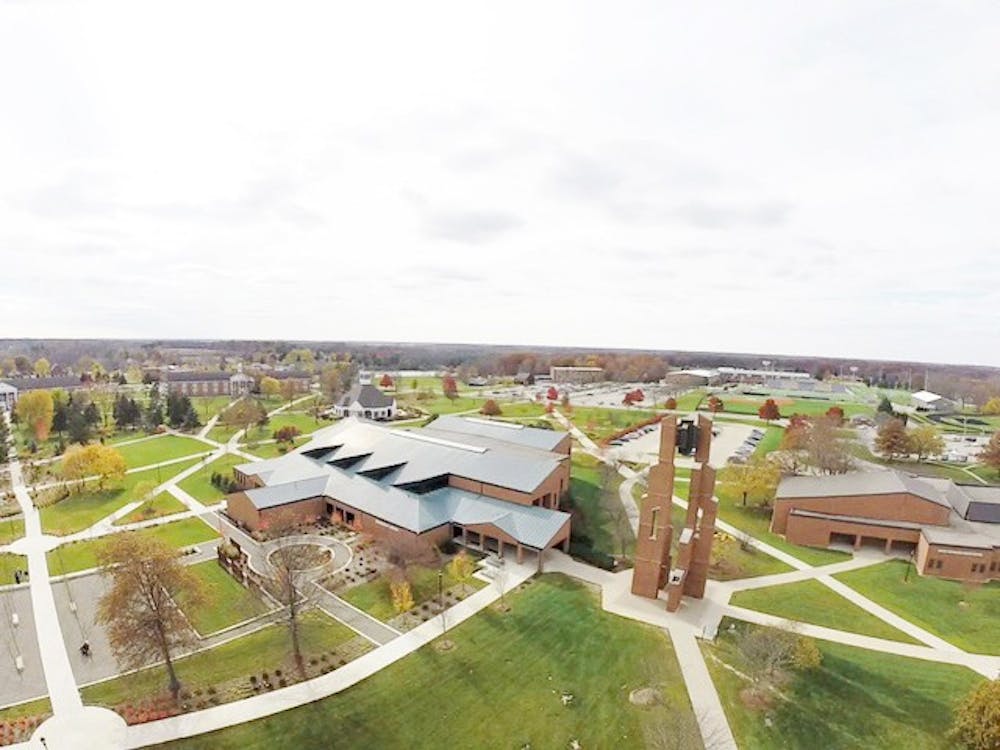Editor's Note: In this first of a two-part series, The Echo examines the costs and benefits of a college education at Taylor. In the next part, we will discuss where Taylor alumni are living and finding employment with respect to this year's graduating seniors.
By Ally Horine | Echo
Rising costs, crippling debt and constant pessimism about the job market plague recent graduates. What are the advantages of college, again?
Unfortunately, the cost of college is not predicted to decrease anytime soon. A recent article published by The Economist stated that the cost to attend a four-year university per student has increased by almost five times the rate of inflation since 1983. At the same time, graduate salaries have remained flat for the last decade, which begs the question: what are college students paying for, and is it worth it?
Before coming to Taylor, senior Jordan Arvin thought about going to auto mechanic school. "I realized I loved working with my hands much more than I liked being in the classroom," Arvin said. "I considered Ivy Tech, which would have been a much cheaper option, but my dad told me to stick it out for one year."
And so he did.
Many students look to vocational schools for education. The median salary in 2012 for an electrician with a two-year degree was approximately $49,000, according to a U.S. News report.The highest-paid were making close to $80,000. With much lower education costs, hands-on experience and a clearer job path, this option is difficult to deny.
A 2014 report published by the White House stated student debt has passed national credit card debt for the first time ever. The average student leaves college with more than $26,000 in debt. These numbers might make some students consider entering the job field directly after high school or taking an alternative route, such as vocational school.
In an effort to make college more affordable, President Barack Obama is working with the government to reduce debt. For the 2014-15 school year, he raised the maximum Pell Grant amount to $5,730-nearly a $1,000 increase since 2008. During his presidency, Obama also doubled the number of Pell Grants given.
Though Obama's initiatives are a step in the right direction, many students still leave universities with debt and have difficulty finding employment. In its recent report, the Economic Policy Institute (EPI) stated that the unemployment rate of workers under age 25 was 14.5 percent, compared to the national rate of 6.7 percent.
Some believe that encouraging more students to attend college will create an imbalance of too many graduates and too few jobs that require a degree. The Bureau of Labor Statistics predict that by 2022 there will be 50.6 million job openings, but only 27.1 percent will require college degrees.
Economics professor Hadley Mitchell believes differently. "There is always a need for well-educated persons," Mitchell said. "In this case, supply creates its own demand. More educated persons can create their own jobs. There was no light bulb until Thomas Edison. And once he created this, a few others came along and created General Electric."
Though loans can add up quickly, a college degree can take you farther than entering the workforce directly after high school. The pay gap between college graduates and those who didn't graduate from college reached a record high last year. Based off statistics from the EPI reported by the New York Times, Americans with bachelor's degrees made 98 percent more an hour on average in 2013 than people without a degree. The average salary for a person with a bachelor's degree is approximately $32.60 an hour, compared to $16.50 for a person with just a high school diploma.
Taylor alumna Kari Travis ('14) had a similar experience. Before coming to Taylor, she took two years off between high school and college in an effort to earn some money and make an educated decision about her future. "In the end, I am very glad I ended up going to Taylor," Travis said. "Once I got outside of college, I started to realize how many opportunities I had, and how every decision I made or learned to make in college shaped who I am."
The price tag of an education can cloud a person's judgment of the other benefits college offers. Economics aside, college is more than a degree-it's an experience.
"Though Ivy Tech would have been a cheaper option for me, I realized I would just go to class and that would be it," Arvin said. In his time at Taylor, he realized there is more to college than the classroom.
As an educator, Mitchell seeks bring up the next generation of forward thinkers who are leaders in their communities."The whole purpose of an education is to broaden us," Mitchell said. "Particularly at a liberal arts university, students learn a spectrum of subjects that teach them to think critically. The need for broadly educated students is crucial."
While college is not for everyone, education is. Whether it's a four-year degree or a vocational degree, the experience and learning is invaluable. Those looking to enter college just might find the debt is worth the quality education and experience gained.
"I think we need to all stop asking if it is worth it," Travis said. "Instead, we should start asking, 'How can I make it worth it?�"





